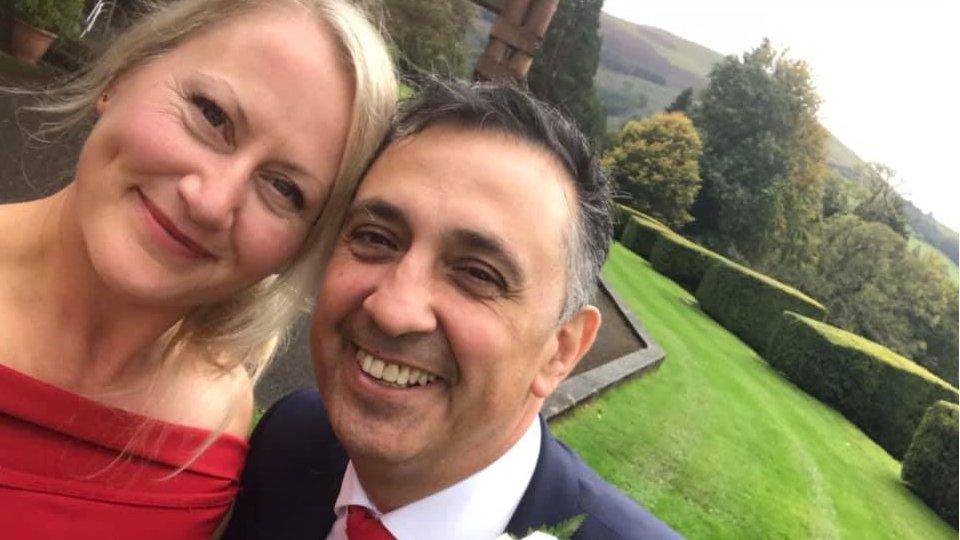Coronavirus: Living under the lockdown in Wales
- Published
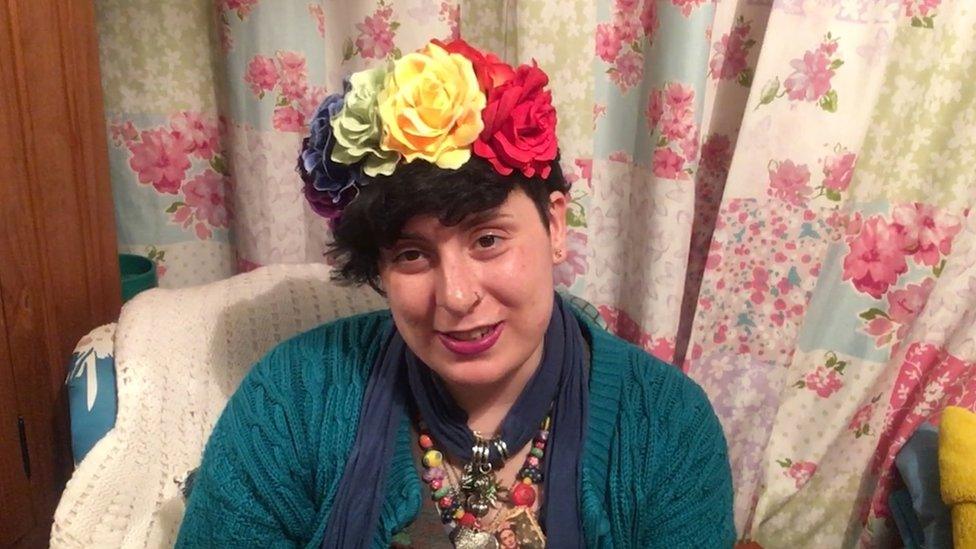
Doctors told Amy-Claire Davies she was unlikely to live beyond childhood
The coronavirus restrictions are challenging for all households, but for one family in Swansea death was already an everyday subject.
Amy-Claire Davies has an unknown condition which means she has to take 40 pills a day just to survive.
Her parents also have health problems, but the family is trying to put a brave face on the dangers of the pandemic.
BBC Wales has been following their story, along with others, as part of new series called Wales in Lockdown.
Death is a regular topic
Doctors thought that Amy, now 25, would not live beyond childhood.
But even now each day is still a struggle, featuring multiple spasms, any of which could kill her.
She is classed as high-risk during the coronavirus outbreak - and she is not the only vulnerable person in her Swansea household.
Father Steve has rheumatoid arthritis and mother Caroline has multiple auto-immune conditions.
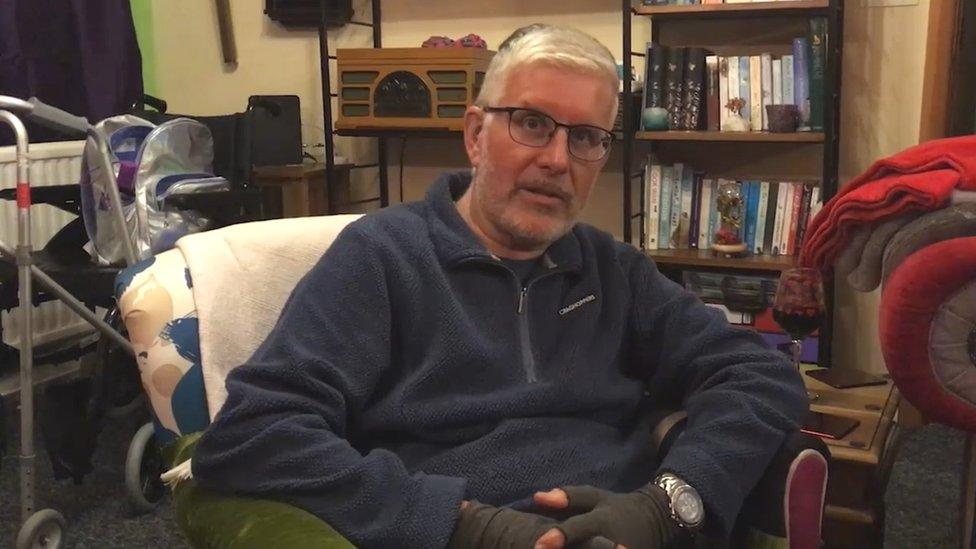
Steve Davies' arthritis makes him vulnerable during the coronavirus pandemic
"In our family we talk about death and dying like most people talk about roast dinners," said Caroline.
"It's been a part of my life for as long as I can remember, it's been a part of Amy's life for as long as I can remember.
"We don't know any different."
Regular hospital appointments are too dangerous, so the family has learned to inject themselves at home thanks to video conversations with nurses.
And although Amy says she thinks they will not be able to return to society until a vaccine is found, she is keeping spirits up by encouraging the family with regular dance and exercise sessions.
"We're trying to make the best out of a very bad, very scary situation," she said.
'A war against nature'
Not all families can be together.
In Abergavenny, Chris Edwards is no longer going into the house where his elderly parents Dave and Diane live.
His mother has asthma and his father, a 95-year-old D-Day veteran, says he cannot remember a situation like this.
He describes the pandemic as "a war against nature".
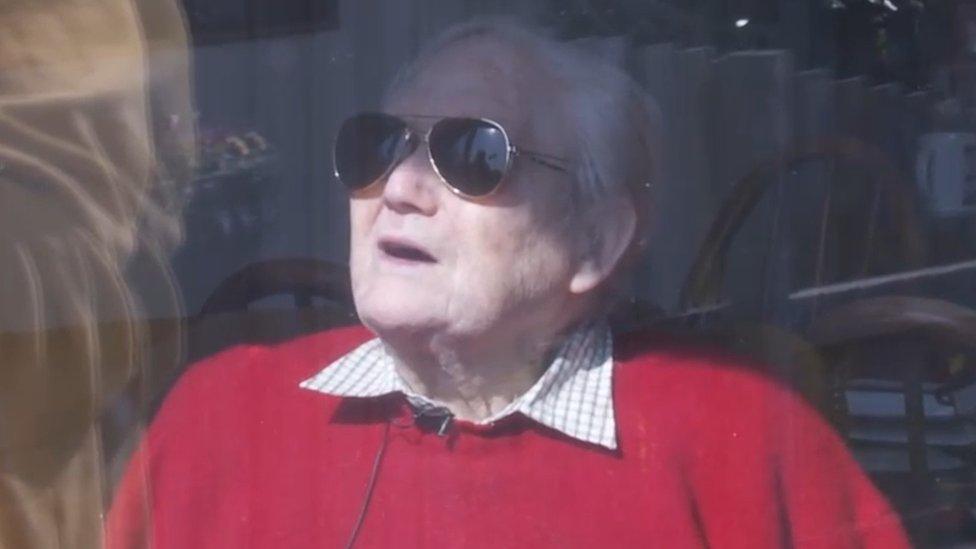
David Edwards has to talk to family through his window
"I worry about the people I love more than anything," he says. "Are they OK, what are they doing?"
Diane says: "Even when the war was on we could get out and see people and talk. This is completely alien."
Only able to talk to his parents through their windows, Chris says it is hard to imagine what could happen if they were to become ill.
"I try not to say goodbye," he said. "I'd rather say 'see you later'."
Being apart is 'horrendous'
Also separated from those dearest to him is Ross Carpenter, who runs a pharmacy in Resolven.
His son Mason has type 1 diabetes, and is isolating at home with mother Lianne while Ross has moved into a friend's house nearby.
It is only a few hundred yards away, but being apart is putting a strain on the family.
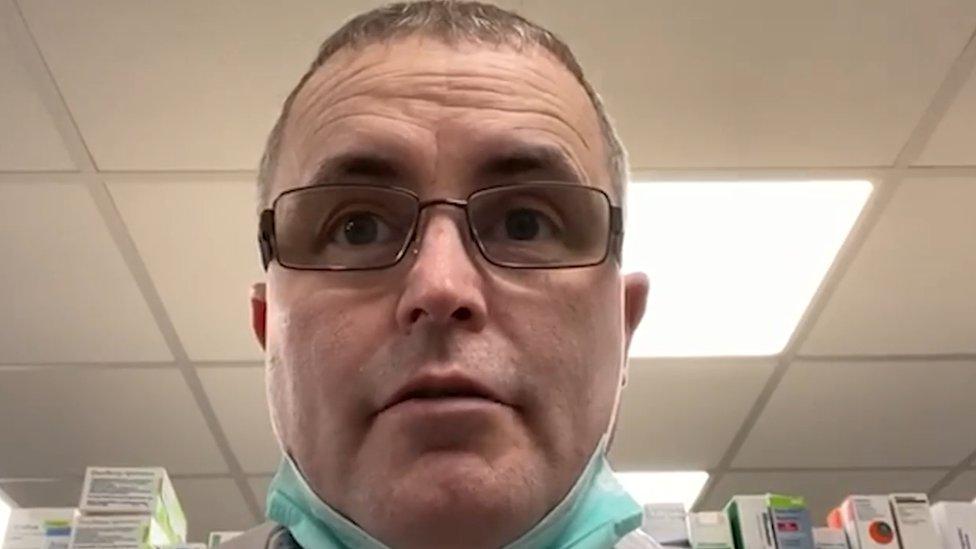
Pharmacist Ross Carpenter has moved out as his son has diabetes
Lianne said: "The first night was horrendous, we'd never experienced being without Ross before.
Ross thinks he could be living away from his family for 12 weeks or even longer and although they still have dinner together online every night, he says he misses his wife and children "terribly".
But the volume of customers has illustrated how vital his sacrifice is.
"I've been doing this for 25 years and the workload is unprecedented," he said.
Fears over staff wages
While Ross has plenty of customers, the opposite is true of beauty business owner Jenna McDonnell in Newport.
She has moved out of her parents' home as they are both in their 70s and have underlying health conditions and is now living in her salon.
"I'm trapped in the shop but my parents' safety comes first," she said.

Jenna McDonnell is now living in her business to protect her parents
One of Jenna's main income streams is weddings, and with ceremonies cancelled in huge numbers, she is facing serious financial issues.
"The last few days have been quite scary. Last week I made the decision to send all my staff home.
"I've lost a lot of money already and I'm quite worried about how I'm going to afford this month's wages.
"I don't know what to do. I want to pay my staff because they are so good but I have no money."
Bus drivers furloughed
Bus company manager Phil Anslow watched much of his business disappear when the decision was taken to close schools in Wales.
Some drivers have stayed away from the headquarters near Blaenavon because of health concerns, and he has had to furlough others due to a lack of passengers.
"We don't know when we are going to see them again. It's a little bit emotional to be honest," said Phil.

Phil Anslow has had to furlough some of his staff
"It's getting harder by the day to operate. We intend to keep on running for as long as possible."
Phil is trying to keep his drivers safe by giving out cloths dipped in antibacterial liquid, and is doing what he can to help the community.
"All NHS staff will get on our buses for free," he said.
Tourists no longer welcome
Normally Delmon Fecci, whose shop and restaurant has been serving customers in Tenby since World War Two, would be pleased to see tourists.
But now he finds himself stunned by those who are still heading to holiday areas despite government advice.
He said: "I was browsing social media and I came across a post about eluding the police to get here to their second homes. Really?
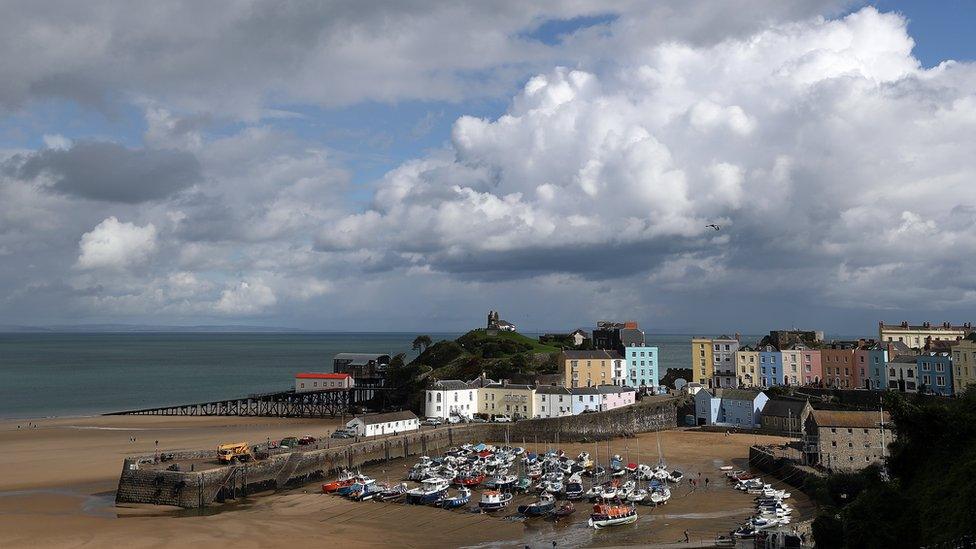
"Come to Pembrokeshire another time. We're not going anywhere"
"Why would someone go to such lengths to get here and break the curfew? We're in lockdown.
"People are travelling here without regard for the locals in the area.
"Come to Pembrokeshire another time. We're not going anywhere, everything will be the same - except it will be safe."
Thanking the NHS with 500 ewes
Farmer Llyr Jones is classed as a key worker as his eggs keep supermarkets supplied.
Like Delmon, he was frustrated early on in the restrictions as he watched people passing his land near Corwen, Denbighshire, heading on excursions.
"People were using not going to work or not going to school as a bit of an extension to their holiday," he said.
His wife is an equine vet and it is lambing season, so the family have plenty going on.
What they didn't need was the price of lamb to suddenly plummet, losing 72p a kilogram.
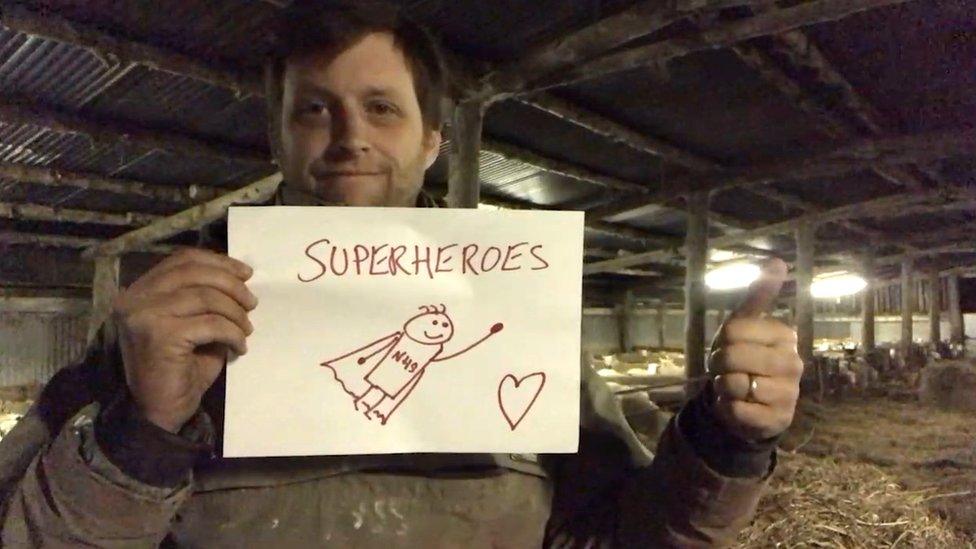
Llyr Jones has encouraged his ewes to join in the thanks for front-line workers
"Basically it's just wiped £10,000 off my income with the lambs I had left to sell," said Llyr.
Llyr cannot wander into the street every Thursday at 20:00 to join in the applause for front-line workers, so has adapted by using his flock.
In a barn with 500 ewes behind him, he has filmed himself shaking a food bucket to generate a din from the sheep, while holding up posters thanking NHS staff and others.
Wales in Lockdown is on Monday 13 April at 19:30 BST on BBC One Wales and on the BBC iPlayer.
- Published10 April 2020
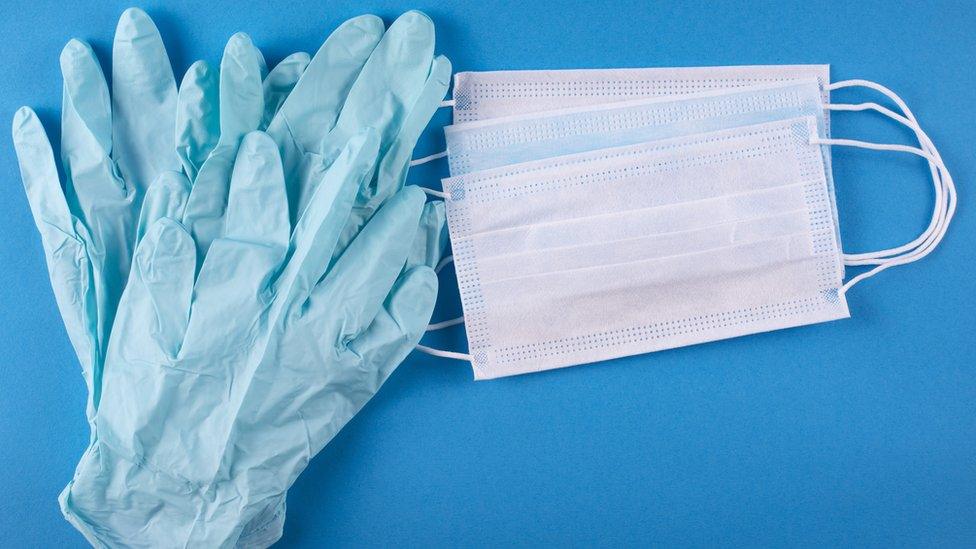
- Attribution
- Published10 April 2020

- Published9 April 2020
